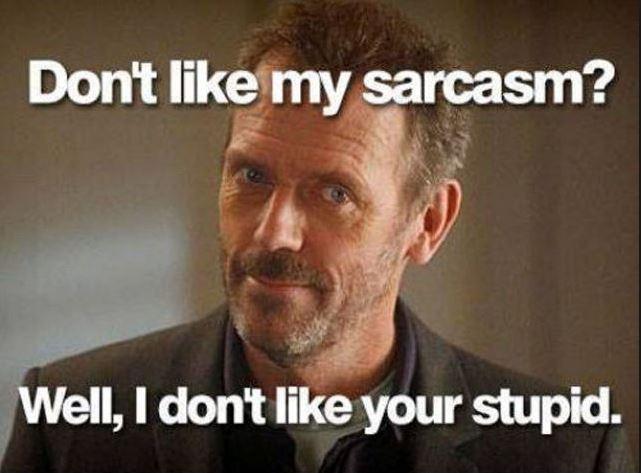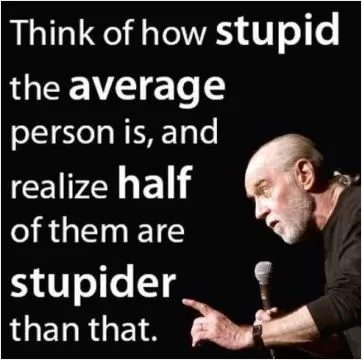Don't like my sarcasm? Well I don't like your stupid

Don't like my sarcasm? Well I don't like your stupid
Sarcasm is a form of communication that is often misunderstood or misinterpreted by others. It involves saying one thing but meaning the opposite, usually in a mocking or ironic tone. Some people find sarcasm to be humorous and clever, while others may find it offensive or hurtful. The phrase "Don't like my sarcasm? Well I don't like your stupid" encapsulates the idea that if someone cannot appreciate or understand your sarcasm, then they should not expect you to appreciate or understand their lack of intelligence or wit.Sarcasm can be a double-edged sword. While it can be a way to express humor or make a point in a clever and indirect manner, it can also be used to belittle or insult others. The line between playful sarcasm and hurtful sarcasm can be thin, and it is important to consider the feelings of others when using sarcasm in communication.
When someone responds negatively to your sarcasm, it can be tempting to retaliate with a sarcastic remark of your own. The phrase "Don't like my sarcasm? Well I don't like your stupid" reflects this impulse to defend oneself and turn the tables on the other person. It suggests that if someone cannot appreciate your sense of humor or your way of expressing yourself, then they should not expect you to be understanding or accommodating of their own shortcomings.
However, it is important to remember that sarcasm is not always the best form of communication. It can be misinterpreted, hurtful, or alienating to others. It is important to consider the context and the feelings of the other person before using sarcasm in a conversation. While it can be a fun and clever way to express oneself, it is also important to be mindful of how it may be received by others.












 Friendship Quotes
Friendship Quotes Love Quotes
Love Quotes Life Quotes
Life Quotes Funny Quotes
Funny Quotes Motivational Quotes
Motivational Quotes Inspirational Quotes
Inspirational Quotes